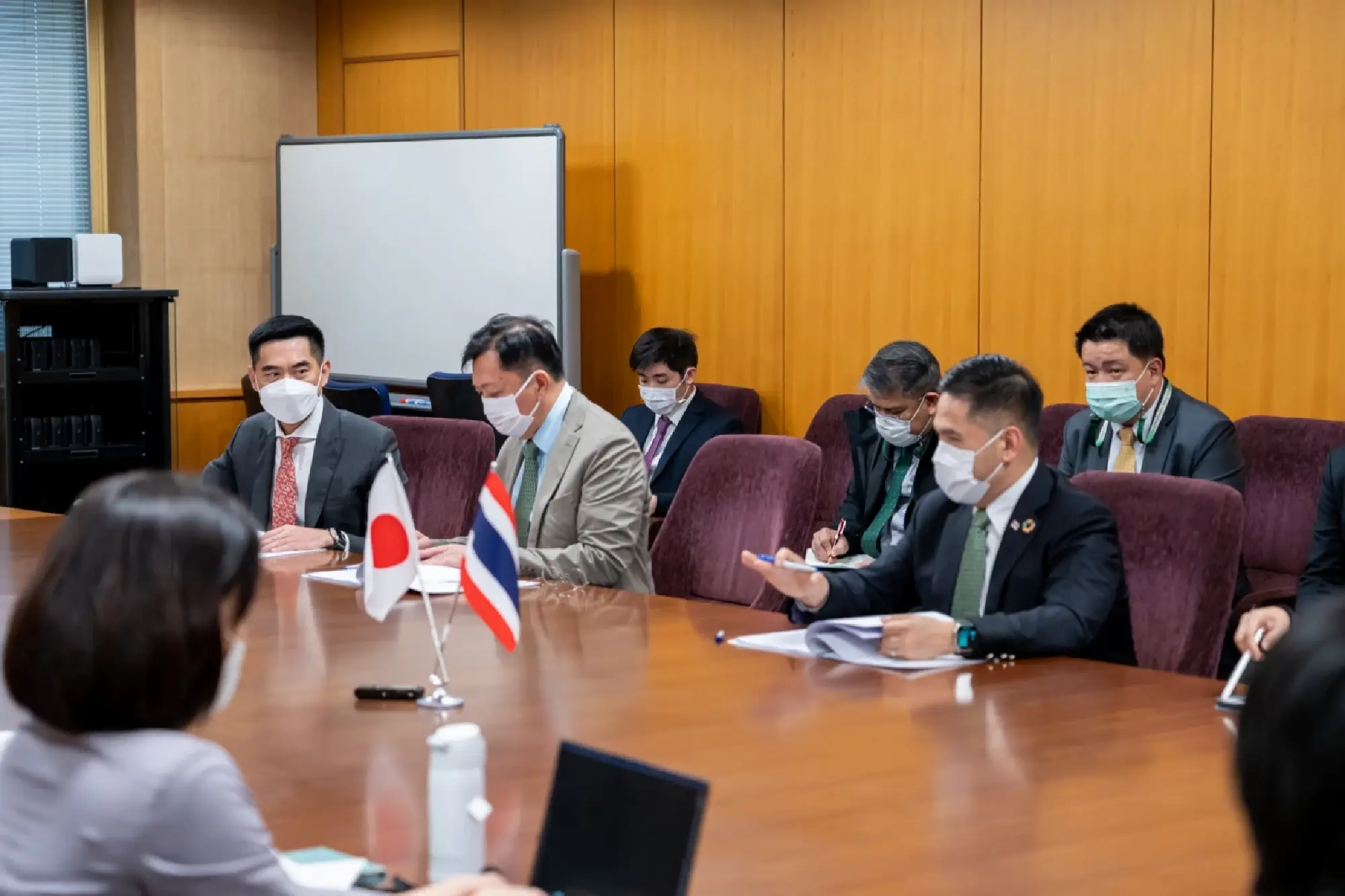Thailand and Japan have agreed to establish a marine litter monitoring centre as part of their bilateral climate change cooperation, Natural Resources and Environment Minister Varawut Silpa-archa said on Saturday.
Varawut made the announcement after a meeting with Hiroshi Ono, Japan’s Deputy Minister of Environment, in Tokyo on January 6 at which they discussed strategies to protect natural resources and tackle climate change.

Also attending the meeting were: Prangtip Kanchanahattakij, minister of the Thai Embassy in Tokyo, Jatuporn Buruspat, permanent secretary at the Ministry of Natural Resources and Environment, Phirun Saiyasitpanich, secretary-general of the Natural Resources and Environmental Policy and Planning Office, and Kiatchai Maitriwong executive director of the Thailand Greenhouse Gas Management Organization.

Varawut said both sides shared experiences in tackling environmental problems, notably coastal erosion, wastewater treatment, and marine litter. The environment ministries of both countries agreed to establish a jointly operated marine litter monitoring centre to serve as a model for the future.

Thailand and Japan also agreed to exchange experience, technology and financial support in climate change operations under the framework of Article 6.2 of the Paris Agreement, Varawut said. The framework allows countries to trade emission reductions and removals with one another through bilateral or multilateral agreements. These traded credits are called Internationally Transferred Mitigation Outcomes.
“With strengthened cooperation with Japan, Thailand is moving closer to the goal of net zero greenhouse gas emissions by 2050,” Varawut said.


